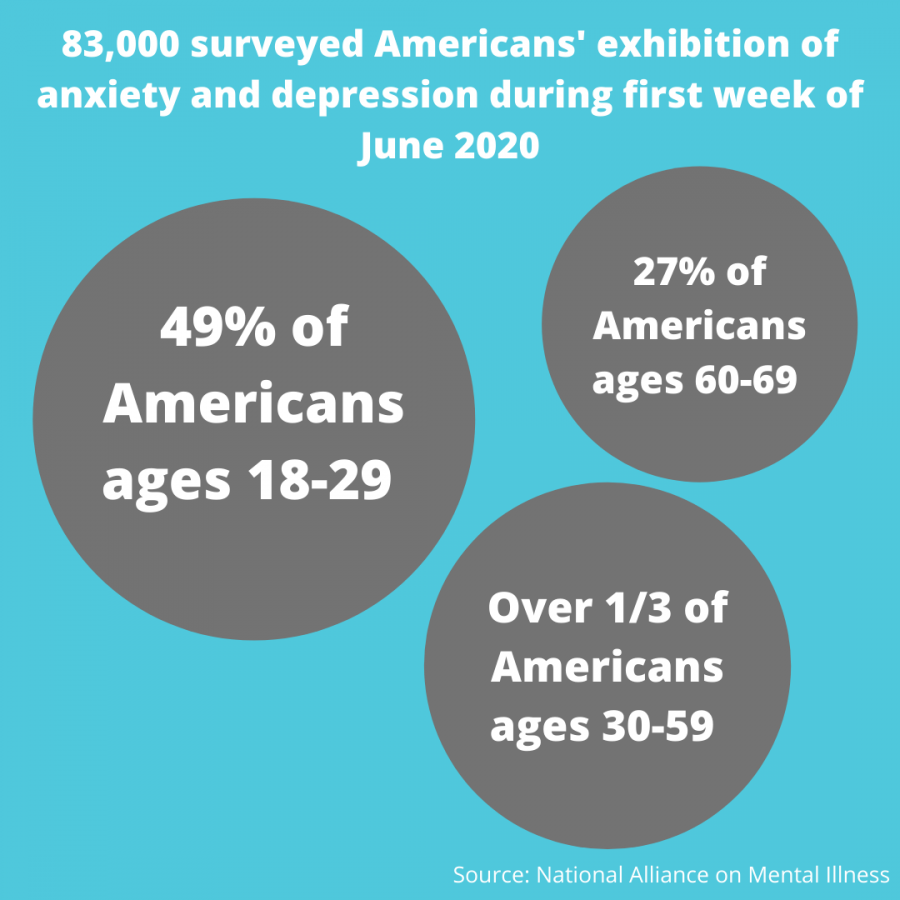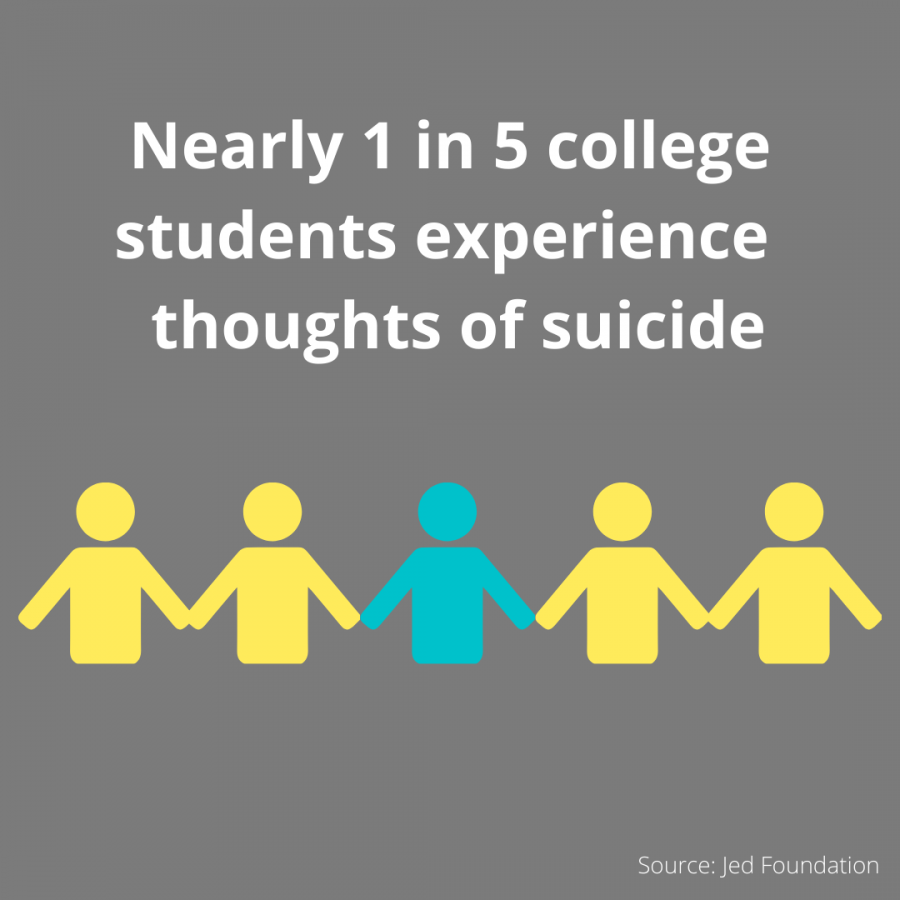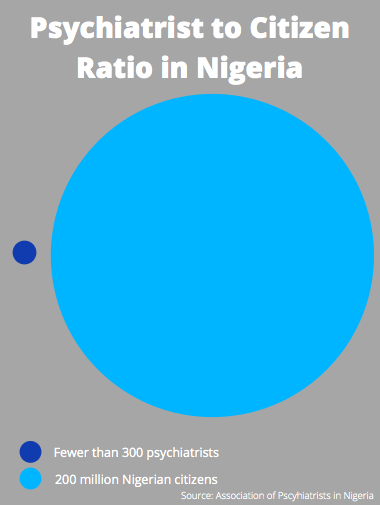 With mental health awareness week taking place on campus, it is important to consider how many students are affected by mental illness. In reality, the number is higher than many of us may expect.
With mental health awareness week taking place on campus, it is important to consider how many students are affected by mental illness. In reality, the number is higher than many of us may expect.
About one third of college students have some sort of depression and nearly half experience anxiety. The most common causes of this are related to school work and financial issues, as well as family and relationship issues. When looking at these causes, we can see mental health is a broad term that can encompass many issues we all can relate to.
While there are many other mental health challenges and issues that affect individuals, college students are most commonly affected by stress-related issues brought on by classes and living away from home. Things like lack of sleep are expected for students since they spend time studying, but something that many people don’t realize is this can play a big role in how one’s emotional health is affected.
Many of the emotional issues that affect young adults are more prevalent after the start of college. This does not necessarily mean that college causes mental illness, but rather it shows how stressful situations can bring about preexisting emotional issues.
When one feels stressed, one often needs to be alone or have space. While this is healthy to an extent, being alone for too long can have detrimental effects to one’s emotional health. As many of us have seen or at least heard, there is a solitary confinement cell in the lobby of the library. This simulator shows the conditions of someone who is placed in solitary confinement, and how if placed in this state for too long, one’s brain development, as well as emotional state, slows down and can be negatively affected.
While the media dramatizes solitary confinement situations like in the popular Netflix series “Orange Is the New Black,” wider society needs to consider the reality of what that experience’s effects are and the effects of other mental health problems in order to promote healthier environments.
We often have stigmas and stereotypes helping us define mental illness so we rarely understand how vast the scope of mental illness is. As we spend this week looking at mental illness as it relates to college students and more specifically Marquette, it is important to understand how these stresses can be seen in all different environments and under all kinds of conditions.
The rate of depression increased over the last decade, especially in college-age individuals, and untreated depression can lead to the increasing suicide rates on college campuses. Seeking assistance can really help bring down these rates and help on a personal level.
College is stressful, and by understanding the different mental illnesses and what may trigger them, individuals can realize that they might need help. From sleep deprivation to depression and eating disorders, Marquette has resources to help individuals struggling to stay mentally healthy.










